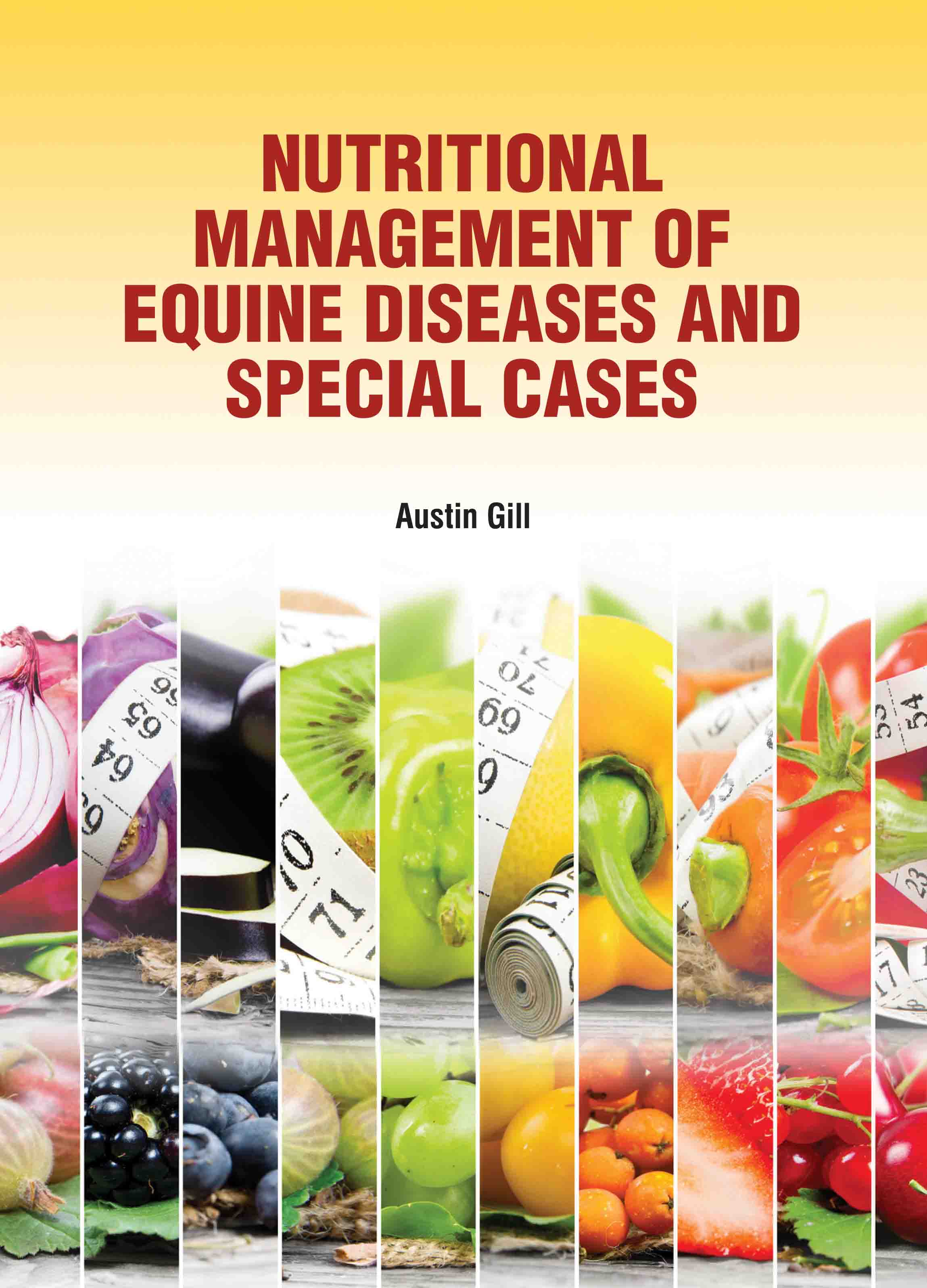
Nutritional Management of Equine Diseases and Special Cases
by Austin Gill
| ISBN | 9781788825078 |
|---|---|
| Publisher | Medplus |
| Copyright Year | 2020 |
| Price | £194.95 |

by Austin Gill
| ISBN | 9781788825078 |
|---|---|
| Publisher | Medplus |
| Copyright Year | 2020 |
| Price | £194.95 |
Nutritional management of normal healthy horses involves meeting their protein, vitamin, mineral, and energy requirements. The age, activity level, and stage of reproduction all affect those nutrient requirements and there are commercial feeds designed specifically to address the nutritional needs of each lifestyle. There are medical conditions affecting some horses that may be better managed with specific nutritional manipulations. The uncomplicated nutrient deficiencies in horses are rare. The nutrients most likely to be deficient are caloric sources, protein, calcium, phosphorus, copper, sodium chloride, and selenium, depending on age and type of horse and geographic area. Signs of deficiency are frequently nonspecific, and diagnosis may be complicated by deficiencies of several nutrients simultaneously. The consequences of increased susceptibility to parasitism and bacterial infections may be superimposed over still other clinical signs. Simple excesses are more common. Nutrients most commonly given in excess of needs, leading to toxicity or induced deficits of other nutrients, are energy, phosphorus, iron, copper, selenium, and vitamin A. No doubt, medical students and physicians as well as other paramedical professionals such as medical technologists, nurses, and public health personnel should have a basic grounding in the diagnosis, prevention and treatment of human parasitic infection. The aim of the present work has been, and continues to be, to provide such fundamental information of animal disease special reference to horse.